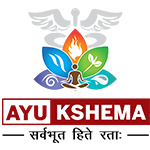
UNANI MEDICINE
Unani Medicine, also called Unani Tibb, Arabian Medicine or Islamic Medicine, a traditional system of healing and health maintenance practiced in South Asia. The origins of Unani medicine are found in the doctrines of the ancient Greek physicians Hippocrates and Galen. It was later developed and refined through systematic experiment by the Arabs, most prominently by Muslim scholar-physician Avicenna.
The history of Unani Medicine can be characterized by the work of its practitioners, or hakims, who relied on natural healing based on principles of harmony and balance, uniting the physical, mental, and spiritual realms.
According to practitioners of Unani medicine, the health of the human body is maintained by the harmonious arrangement of al-umoor al-tabiyah, the seven basic physiological principles of the Unani doctrine. Interacting with each other, these seven natural components maintain the balance in the natural constitution of the human body. Each individual’s constitution has a self-regulating capacity or power, called tabiyat (or mudabbira-e-badan; vis medicatrix naturae in Latin), or to keep the seven components in equilibrium.
There are various therapeutic approaches available to the Hakim. Ilaj-bi-ghiza, or dietotherapy, involves recommending a specific diet, which is the simplest and most natural course of treatment by a Hakim. Ilaj-bi-dawa, or pharmacotherapy, is the use of medicines by Unani Hakims. The Unani system’s pharmacopoeia is vast, enriched with more than 2,000 medicines derived from various herbal, mineral, and animal sources. Classical Unani medicine recommends established “regimental” therapies (tadabeer) in the treatment of various chronic & acute diseases. The essential function of all those regimens is to remove impure blood or impurities from the body.
